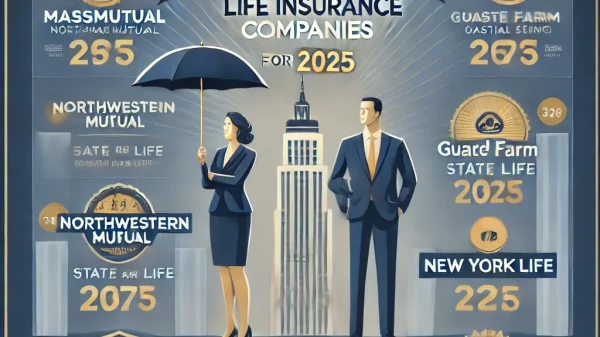Car insurance premiums can vary significantly from one driver to another. Some people pay hundreds of dollars less per year than others, even if they drive similar cars. Ever wondered why?
Insurance companies use several factors to calculate your premium, determining how much risk you pose as a driver. Understanding these factors can help you find ways to lower your costs while maintaining adequate coverage.
In this article, we’ll discuss the top five factors that affect your car insurance premiums and how you can reduce your rates.
| Factor | Impact on Premium | How to Lower Costs |
|---|---|---|
| Driving Record | Tickets, accidents, and DUIs increase premiums. | Drive safely, take a defensive driving course, and check accident forgiveness options. |
| Age & Experience | Younger drivers and seniors may pay higher rates. | Teenagers should stay on a parent’s policy, and seniors can take mature driver courses. |
| Vehicle Type & Safety Features | Luxury and sports cars cost more to insure. | Choose a car with safety features and lower repair costs. |
| Location | Urban areas and high-crime regions have higher premiums. | Use secure parking and check insurance rates before moving. |
| Credit Score | Lower credit scores can lead to higher premiums. | Maintain a good credit score and check your credit report for errors. |
1. Your Driving Record 🚗💨
Your driving history is one of the most significant factors that influence your car insurance premium. Insurance companies assess your risk level based on past accidents, violations, and claims history.
🔹 How It Affects Your Premium:
- If you have a clean driving record (no accidents or violations), you may qualify for lower rates.
- Traffic tickets, such as speeding or running a red light, can increase your premiums.
- At-fault accidents will raise your rates significantly, as insurers see you as a higher risk.
- DUI/DWI convictions result in some of the highest premium increases.
✅ How to Lower Your Premium:
- Drive safely and follow traffic laws.
- Consider a defensive driving course to remove points from your record.
- If you’ve had past accidents, look for insurers that offer accident forgiveness programs.
2. Your Age & Experience 🎂🛣
Young and inexperienced drivers typically pay the highest insurance premiums. This is because statistics show they are more likely to be involved in accidents.
🔹 How It Affects Your Premium:
- Teenagers (16-19 years old) pay the most for car insurance due to their lack of experience.
- Drivers in their 20s and early 30s see a gradual decrease in premiums.
- Middle-aged drivers (40s & 50s) often receive the lowest rates.
- Senior drivers (65+) may see a slight increase in premiums due to declining reflexes.
✅ How to Lower Your Premium:
- If you’re a young driver, stay on a parent’s policy (it’s often cheaper).
- Look for good student discounts if you maintain a high GPA.
- Older drivers can take mature driver courses to lower their rates.
3. Your Vehicle Type & Safety Features 🚘🔧
The car you drive plays a major role in determining your insurance costs. Some vehicles are cheaper to insure, while others come with higher premiums due to repair costs, safety ratings, and theft rates.
🔹 How It Affects Your Premium:
- Luxury cars & sports cars → Higher premiums due to expensive repairs and theft risk.
- SUVs & sedans → Generally cheaper to insure, especially if they have high safety ratings.
- Older vehicles → Can be cheaper, but if they lack safety features, they may cost more.
- Safety features (airbags, anti-theft systems, lane assist) → Can lower your rates.
✅ How to Lower Your Premium:
- Buy a car with high safety ratings and anti-theft features.
- Check insurance costs before purchasing a vehicle.
- If you drive an older car, consider dropping full coverage if it’s not worth the cost.
4. Your Location 🌍🏠
Where you live has a big impact on how much you pay for car insurance. Insurance companies assess the risk levels of different areas based on accident rates, crime rates, and weather conditions.
🔹 How It Affects Your Premium:
- Urban areas (big cities) → Higher premiums due to more traffic, accidents, and theft.
- Suburban & rural areas → Lower premiums due to fewer accidents and lower crime rates.
- States with no-fault insurance laws → Typically have higher premiums.
- Weather-prone areas (hurricanes, floods, wildfires) → Increased risk leads to higher rates.
✅ How to Lower Your Premium:
- If possible, park in a garage or secured area to reduce theft risk.
- Consider moving to a lower-risk area (if feasible).
- Ask about usage-based insurance if you drive less than the average driver.
5. Your Credit Score (In Most States) 💳📉
In many states, insurance companies use credit-based insurance scores to determine rates. A lower credit score is often linked to a higher likelihood of filing claims, leading to increased premiums.
🔹 How It Affects Your Premium:
- Excellent credit (750+) → Lower insurance rates.
- Good credit (650-749) → Competitive rates with room for improvement.
- Fair credit (600-649) → Slightly higher premiums.
- Poor credit (<600) → Significantly higher insurance costs.
✅ How to Lower Your Premium:
- Pay your bills on time and reduce outstanding debt.
- Check your credit report for errors and dispute any inaccuracies.
- If your credit score has improved, ask your insurer for a rate review.
Bonus Factors That May Affect Your Insurance Premium
Aside from the top five factors, insurers also consider:
✔️ Annual Mileage – The more you drive, the higher your risk of accidents.
✔️ Marital Status – Married drivers often receive lower rates.
✔️ Insurance History – Lapses in coverage can increase premiums.
✔️ Deductible Amount – Choosing a higher deductible lowers your monthly premium.
How to Get the Best Car Insurance Rate
💡 Follow these tips to lower your car insurance premium:
✔️ Compare quotes from multiple insurance companies.
✔️ Bundle insurance policies (home, renters, auto) for discounts.
✔️ Increase your deductible to lower your monthly payments.
✔️ Maintain a clean driving record to qualify for better rates.
✔️ Take advantage of discounts (good driver, multi-car, low mileage).
Final Thoughts
Understanding the factors that affect your car insurance premium can help you make smarter decisions when shopping for coverage. While some things (like age and location) may be out of your control, there are many ways to reduce your rates.
🚗 Want to save more on car insurance? Compare different insurers, maintain a good credit score, and drive safely to enjoy the best possible rates!














